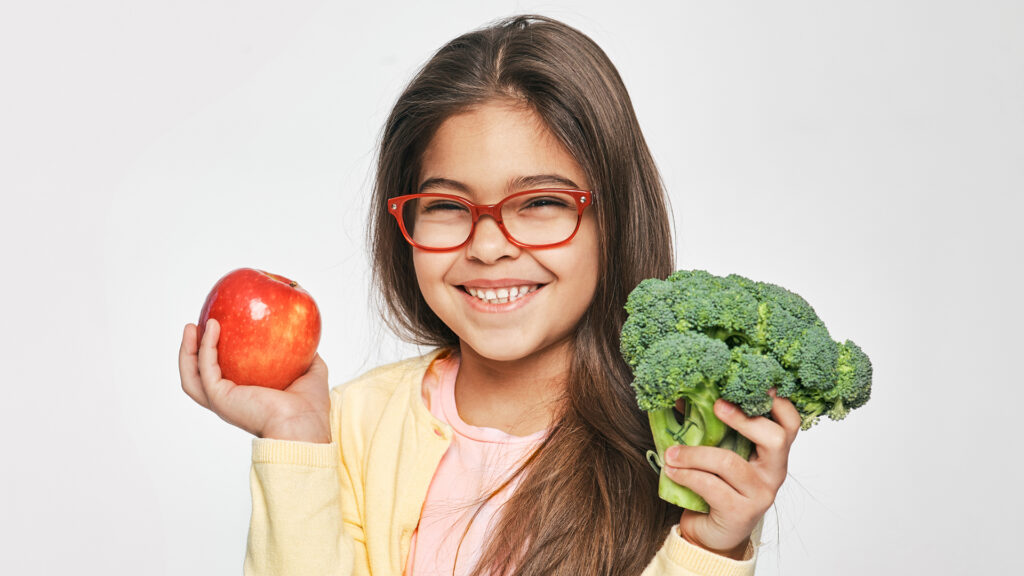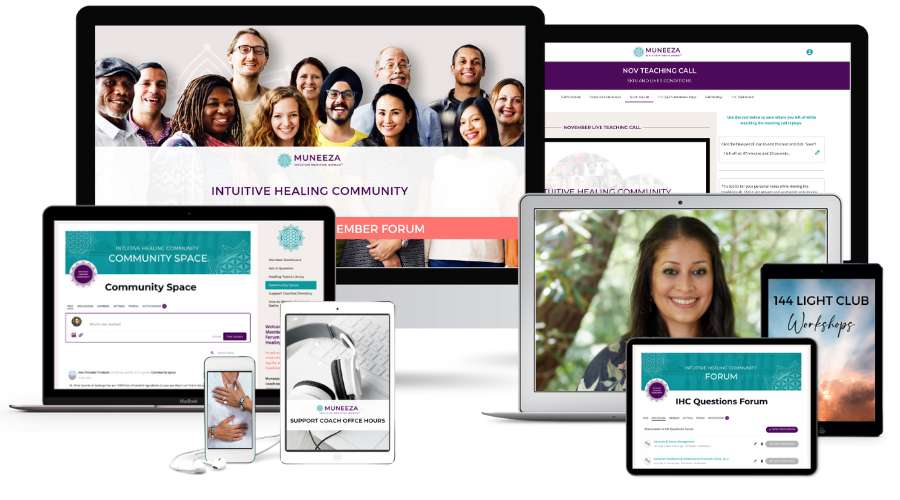It’s not easy being a health-conscious parent raising healthy kids.
Everyone has an opinion on the healthiest diet these days. Whether you subscribe to paleo, keto, carnivore, raw vegan, pescatarian, lacto-ovo vegetarian, or low-carb, you probably have a belief system about what everyone should eat for optimal health.
I support everyone’s right to choose what’s best for them. It’s part of exercising our free will as humans on Earth.
What I don’t appreciate is when people try to push their food belief systems onto others, especially other families.
BOUNDARIES, ANYONE?
I spend a lot of time discussing boundaries with the health practitioners I train for a reason.
Boundaries are among the most important yet neglected aspects of interpersonal communication.
I work hard to maintain good boundaries in my home life, family, community, and business. I’m not perfect—nobody is—but it matters to be conscious of setting clear boundaries for yourself and respecting others’ boundaries. This is why it gets on my nerves when others completely disregard boundaries in favor of their opinions and beliefs.
When my middle daughter was a baby, she was small – born in the 10th percentile for height and weight. Both our pediatrician and I weren’t concerned. I knew she would grow at her own pace and had all the nutrition she needed. Also, I had the same diet for both my first and second pregnancies, which included animal protein.
My first daughter was born in the 90th percentile for height and weight, yet my second was born in the 10th percentile for height and weight. After my second was born, she had several health issues. So I started to change her diet and became more plant-based because she was very reactive to gluten, dairy, and multiple other foods.
A family friend disagreed.
This family friend felt that it was necessary to comment on the lifestyle I maintained for myself and my children out of a belief that my kids weren’t getting enough protein to help them reach their developmental potential.
I knew that most people’s sense of normal growth is skewed due to animal growth hormones pumped into industrial livestock, which passes into the human body. I also knew that my daughter needed special dietary considerations to overcome a long list of allergies she had from an early age.
With time, my daughter has reached the 60th percentile for height and 40th for weight. She is healthier than ever and no longer struggles with debilitating allergies, which is due to the healing protocols we have used to influence her diet throughout her life.
This is the mantra every parent raising healthy kids should repeat: you don’t have to agree with my decisions, but you don’t have the right to comment on them or question them. Share on XI want to explore five of the biggest myths I’ve observed as a parent of healthy kids to help empower any other parents out there who aren’t used to the intense scrutiny that raising a healthy family automatically seems to attract.
June is HEALING IN FAMILIES month in my Intuitive Healing Community membership program.
Join us to dive into every aspect of raising healthy families, including the practical tips and tools I’ve gained while raising three daughters!
BUSTING 5 MYTHS ABOUT RAISING HEALTHY KIDS
1. Kids innately don’t like healthy food.
This is easily the most pervasive myth and false belief regarding raising healthy kids. It is unbelievable to me that we assume our kids prefer unhealthy processed foods to natural foods that our bodies are designed to consume.
Human beings enjoy healthy food – it’s natural! Fruit and vegetables have pleasing tastes that signal pleasure to our brains when we consume them.
Unfortunately, toxic heavy metals in our brains can alter how our taste buds experience foods, giving what would normally be enjoyable an unpleasant taste. Many of us also grow up consuming foods packed full of MSG in all its forms, like natural flavors and nutritional yeast or even other types of yeasts, which skew our taste buds.
Want to learn more about how pervasive MSG is in our food and the different ingredient names it’s given on labels? Read my blog, Hidden Sources of MSG.
A healthy child with a healthy brain will love eating grapes, cauliflower, spinach, and oranges. When children are given processed sugar, packaged foods full of artificial and “natural” flavors, and other additives, it’s not that they don’t enjoy healthy food; they just have forgotten what food is supposed to taste like.
Adults are no different. Unhealthy adults with unhealthy brains will crave foods they know aren’t good for them. Many processed foods are designed to be addictive, leading to eating disorders and a fraught relationship with food that healthy kids may avoid if given the chance to enjoy natural meals free from added troublemakers.
2. Kids need large amounts of protein or they’ll be malnourished.
Protein, in the form of amino acids, is required as a building block in all living cells. We partly receive these amino acids from the food we eat. The human body does not produce all amino acids, which may partly explain where the protein obsession began—we do actually need some protein to be healthy, just not in the large amounts doctors and influencers think.
The human body needs 20 amino acids to function properly, and nine of them—called essential amino acids—are consumed in food. Some of the most well-known essential amino acids are tryptophan, threonine, lysine, and phenylalanine.
There are no essential amino acids we cannot get in adequate amounts from plant foods.
Eating high-protein foods does not translate to high absorption of readily usable amino acids – this is where the protein myth falls apart. You don’t need to eat eggs or steak to receive proper levels of leucine and lysine. Potatoes are one of the best sources of lysine readily available to us.
So, to say that children need massive amounts of high-protein foods to grow properly and be healthy is false. One of the most obvious examples to prove that falsehood is breast milk, which, according to modern medical research, is believed to be 87% water and then mostly sugar in the form of lactose (about 7%), followed by fat (about 4%) and then a little protein (1%). Read more in this published journal.
According to respected health author, Anthony William, who has written extensively about health for mothers and families, the glucose content of breast milk may actually be as high as 95%, with the remaining 5% a mixture of fat and protein.
In other words, it’s sugar that helps babies grow, not protein. Babies thrive on a sugar-rich hydrating blend made by the human body. Whole, healthy sugars drive development in young bodies, not protein. Carbohydrates, like lactose and oligosaccharides, are the most abundant nutrient in human breast milk.
Protein decreases in human breast milk as an infant grows, as the journal above describes.
So, the idea that a high-protein diet full of nut butters, cow milk, cheese, eggs, and animal proteins like meat, poultry, and fish is the only way for kids to grow up healthy is very much a myth.
3. Kids don’t grow on low or no animal protein.
Have you ever noticed that any time kids who eat a plant-based diet have health challenges, their diet is automatically the first thing everyone looks at as the cause? As a mother of three daughters who eat plant-based, I’ve experienced this endlessly.
It’s worth mentioning this piece because there’s another pervasive myth that animal protein is the only way to encourage healthy growth in kids. Children who eat everything rarely have to undergo a doctor’s scrutiny of their diet, despite mounting evidence that conditions like diabetes in children may be directly linked to high-fat and high-protein diets.
Animal proteins have actually been shown to carry increased levels of poisons and environmental toxins. This Swaddle article explains the process of bioaccumulation of toxins like DDT, pesticides, and toxic metals like mercury as you move up the food chain.
There’s a reason pregnant women are cautioned against eating too much seafood—the mercury content, which is ever-increasing in our oceans, is the primary cause for that warning.
Kids raised on a plant-based diet may not grow as fast or tall as some of their peers who are eating animal protein, but that’s more related to growth hormones pumped into industrial livestock that get passed on to people who eat them than to actual nutrition. That doesn’t mean plant-based children are unhealthy—they just aren’t exceeding their body’s natural structural growth.
Even if an animal is not pumped with artificial hormones, the animal hormones that produce a 200-ton cow are not helpful to a human that is supposed to grow to, say, a 150-pound adult. And these animal hormones can cause ‘artificial’ growth in kids. So when you compare kids who are plant-based, they appear smaller. That doesn’t mean plant-based children are unhealthy—they just aren’t exceeding their body’s natural structural growth.
There’s nothing wrong with consuming animal proteins, and I support anyone in making the choices they feel are right for them and their families. However, I naturally defend plant-based families since their diets often put them under a microscope.
4. Healthy kids will automatically have dental issues.
There is a myth that families who raise healthy kids on honey, maple syrup, fruit, and natural snacks will inevitably encounter dental issues. This myth primarily stems from the false belief that sugar, in all its forms, is the underlying cause of cavities in the mouth.
In reality, dental issues are more related to bacteria in the mouth and gut, digestive problems, poor mineralization due to a diet lacking nutrients, stress, acidic and high-fat foods, and poor hygiene practices.
If you want your family to have healthy teeth and gums, eat a highly nutritious diet of living foods like fruits, vegetables, leafy greens, wild foods, herbs, and the cleanest sources of protein in moderate amounts. Avoid caffeine, alcohol, processed foods, and a diet too high in fat, and watch your kids’ teeth transform. Read more about dental health in my Dental Health Q&A blog linked here.
5. Sugar makes kids crazy.
This myth is so ingrained into society that it’s tough to go against it. The simple truth is this: sugar isn’t the villain when it comes to behavioral challenges in children.
Sure, a blood sugar spike might cause a noticeable uptick in seemingly erratic energy in kids, especially when it’s processed sugar that is removed from nutrients and spikes glucose levels in the blood far faster than the body is designed to handle.
However, behavioral challenges in kids are far more often tied to an overall lack of health as well as toxic exposures that our kids are subject to in today’s world.
Toxic heavy metals are one example of a pernicious cause of severe moodiness, focus and attention issues, depression, anxiety, and even conditions like autism, or what is referred to as behavior that falls on the autism spectrum.
MSG (monosodium glutamate) is another toxin that can disrupt healthy brain function and lead to mood challenges in kids. Poor nutrition or meals that overburden their livers and digestive tracts may also tax little bodies, which has a major impact on overall physical and emotional health.
Blaming everything on sugar feels a little bit like the gaslighting that women experience when the medical establishment blames everything on hormones if a woman is experiencing chronic symptoms of any kind.
It’s not always as simple as the experts believe. When kids have challenging moments, there’s more going on than just “sugar.” Examining the various factors in play is essential.
THERE IS NO PERFECT
When it comes down to it, we all want what’s best for ourselves and our families. We want happy, healthy kids who have every opportunity to live a full life free from burdens.
It’s easy to get caught up in the idea that there is a perfect way to raise healthy kids to the point where we become hard on ourselves and others when we believe we, or someone we know, are falling short.
There is no perfect version of a healthy family or healthy kids. There is only your perfect version of what it means to be a healthy family raising healthy kids. What’s important is that you constantly check in with what you feel to be the best way to nourish your family.
Worry less about what other people will think. Try to take every piece of mainstream advice with a grain of salt. See through the myths and the agendas and tune into what your gut tells you about what real food is and what it can offer to you and your family.
When you’re aligned with your intuition and in tune with what’s true, you’ll find the right path for you and your family and be able to tune everything else out.
To your health and peace,
Muneeza







